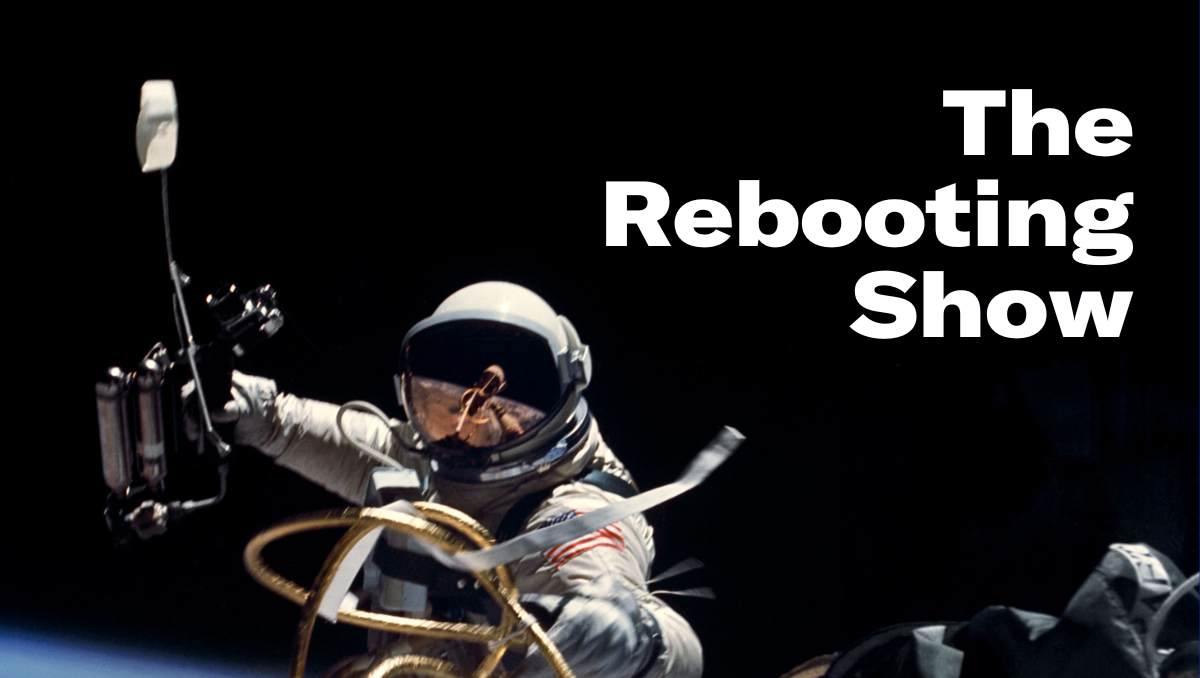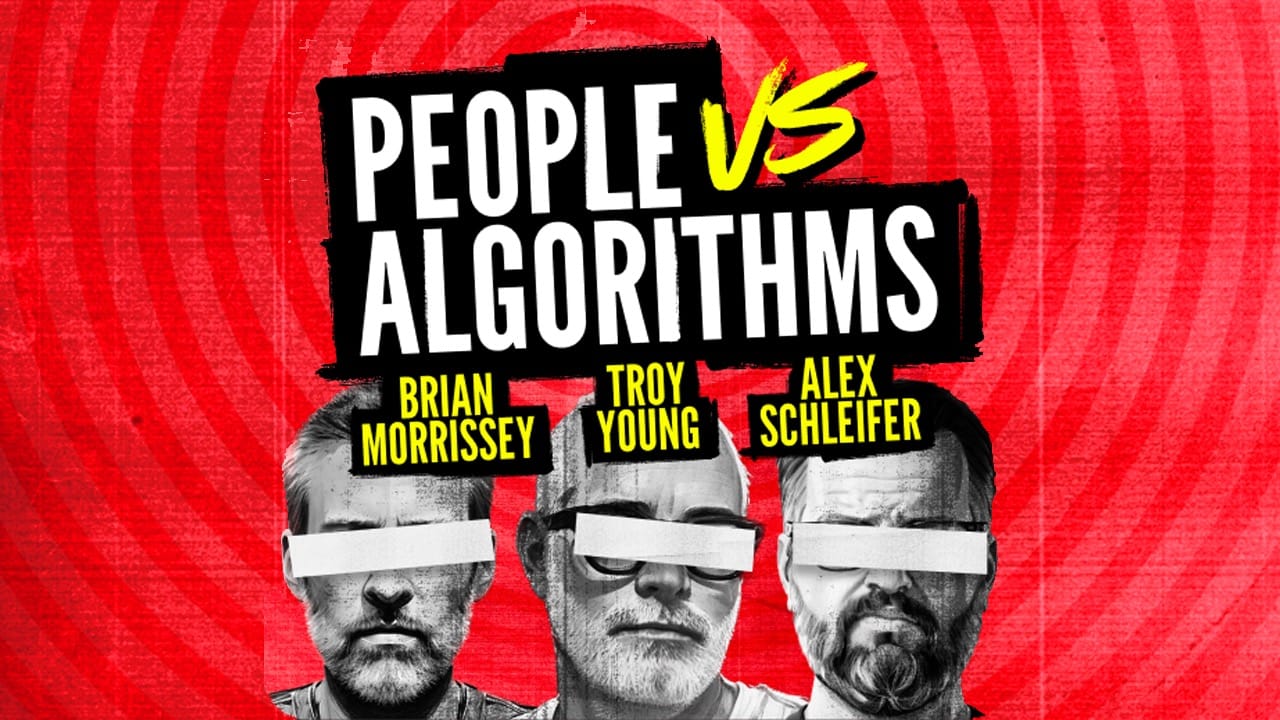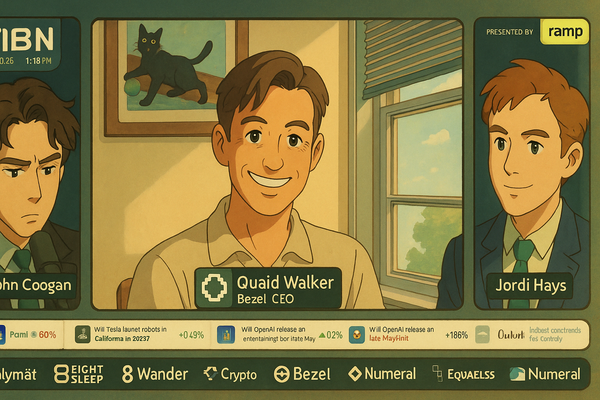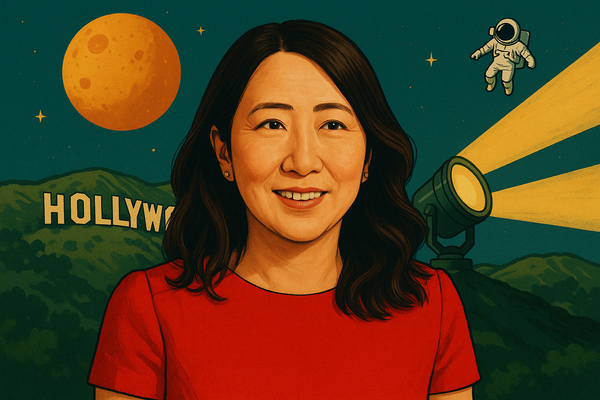The media education of Jeff Bezos

This Thursday, Oct. 31, join me for The Rebooting’s latest online forum. I’ll be joined by BlueConic’s Patrick Crane and Actable’s Craig Schinn to discuss how publishers can take control of their first-party data. Some of the topics we will discuss:
- Why getting to start is critical. Too many publishers kick the can down the road.
- How to create a true value exchange for people to give their information
- Thinking beyond reg walls to get logged-in users
The Online Forum will start at 1pmET. If you can’t make it, all those registered will get a link to the replay.
In today’s newsletter:
- A conversation with Blockworks CEO Jason Yanowitz
- Jeff Bezos learns the impossible gymnastics of the news business
- The emerging media business consensus
You can get full access to The Rebooting’s content by upgrading to a TRB Pro membership.

AI-driven video recommendations

Today’s audiences expect relevant video content on every page of your site. EX.CO’s advanced contextual recommendation engine, powered by large language model (LLM) technology, makes the process effortless. It analyzes your webpages, suggests suitable videos, and matches them seamlessly across your site. The result? A tailored UX with more monetization opportunities and more relevant videos on every page. Grab EX.CO’s free one-pager to learn how you can start using AI today to match the right video to the right article.
The evolution of Blockworks

Check out this week’s episode of The Rebooting Show with Blockworks CEO Jason Yanowitz. We discussed how Blockworks has evolved the company from an events business to podcast network to news provider to becoming a data and information play with media, events and franchises feeding the core data and research business. This kind of shift is hard to pull off. Among the issues we discuss:
- Using podcasts for broad reach and affinity
- News as a credibility driver
- Pulling back on B2C events to focus on B2B
- Using media to drive “negative CAC” for information services
- Implementing a “house of brands” strategy
Listen to the episode on Apple | Spotify | other podcast platforms
The media education of Jeff Bezos
Jeff Bezos has a great business truth: remember people are not truth seeking animals but social animals. We are herd animals, so we tend to reward those that affirm the views of the group.
“Truths often don’t want to be heard,” he told podcaster Lex Fridman. “Important truths can be uncomfortable, awkward, exhausting, challenging, and make people defensive.”
The secret for high-performing organizations is to support truth telling. But truths are complicated, particularly in the Information Space. Yuval Harari’s new book, Nexus, explores how information networks operate – and how more information does not necessarily mean a greater understanding of the truth, and indeed often works against it.
It’s a good lesson for Bezos to relearn as the Post enters crisis mode after scrapping its endorsement of Kamala Harris. This was seen in many quarters as the abdication of truth telling, a final nail in the coffin of the “Democracy Dies in Darkness” era. The accepted truth the Post pushed – Trump is a singular threat to American democracy – served to bind together a tribe.
The backtracking on that positioning has set off the latest crisis at the Post, which has been through a few this year alone. It marks the nadir of the 11 years Bezos has owned the newspaper.
Bezos fired back in founder mode, declaring he is defending journalism and the perception of bias that endorsements bring. He even took to the first person plural to speak for “our profession.” To be fair, there is no formal accreditation process for journalists. The average net worth of journalists has risen with Bezos in the fold.
The media business is extremely odd for many reasons. One of which is that owners are supposed to keep distance from the actual product, the journalism. And the journalists themselves have dual loyalties to both the company and to the journalism guild – and not in that order.
It’s even odder because the journalism product itself is divided into a news side and an opinion side, which themselves are distinct from the sales side. And then there’s a third newsroom coming into the mix.
The loss of trust in news Bezos cites for the decision has many causes. One factor is clearly the broad perception of bias, which is not helped by opinion side that tend to line up neatly in ideological lanes. The Post didn’t decline to endorse a presidential candidate; it declined to endorse Harris, because of course it was going to endorse her.
From a pure business perspective, this is a challenge. Trump has broad support in this country, like it or not, and it is deep. Bezos and fellow billionaires have mostly dispensed with their activist period following 2016 and running through the pandemic and BLM. This can be seen as “bending the knee” to Trump or a needed correction.
Bezos argues the non-endorsement is part of this correction. “Most people believe the media is biased,” he wrote. “Anyone who doesn’t see this is paying scant attention to reality, and those who fight reality lose.”
After all, presidential endorsements by newspapers are a performative and outdated exercise. The Post has endorsed the Democratic candidate every election since starting the tradition in 1976. The decision on its merits is sensible. Why tell readers who to vote for? It just feeds into perceptions of bias. It also makes no difference. The idea of clinging to a “tradition” that was hatched in the aftermath of Watergate doesn’t seem very compelling.
It’s particularly old-fashioned coming from a faceless institution at a time when trust in institutions continues to lose ground to individuals. Bezos made note of that twice, namechecking podcasters (off-the-cuff and unresearched) and social media (inaccurate and barbs) as gaining traction at the expense of news organizations.
The podcast election proved that. Trump and Harris have both blitzed podcasts and relied far less on traditional media. The courting of independent media feels like a turning point. It’s hard to see a Vance-Buttigieg election turning back to mass media.
The last election was about microtargeting and this one is shaping up as a triumph of micromedia. How much attribution will Theo Vonn get in a Trump-Vance win? It would question the efficacy of dumping so much money into TV ads. Or maybe Trump is just unique at preternaturally knowing how to resonate in the Information Space.
Fighting Trump turned out to be good business. The Trump Bump was great for business. The drama, the non-stop leaks and the outrage all win in the information space. It helped publications like the Post make a pivot to subscriptions, riding on a news Bezos-chosen “Democracy Dies in Darkness” branding that attracted tons of subscribers for the mission, not the content.
A direct to consumer model would presumably appeal to someone like Bezos. Better alignment. Only that can quickly lead to audience capture. Well-meaning people may line for straight-down-the-middle news but the subs market rewards ideological conformity. The New York Times has built a business that’s the envy of the industry by becoming a lifestyle brand for upper-income progressives.
This embrace of a more ideological approach was a short term success but always carried the long term risk of audience capture. The Post has seen 200,000 subscription cancellations. That will presumably grow, as this story and blame game drags on.
Bezos couched his decision in restoring trust, yet it has clearly ignited massive amount of distrust. It also works against his impatience with the Post’s lossmaking. He’s ordered the company to claw its way back to profits, but that’s impossible to do without a healthy subscriptions business.
The oddity that so many would cancel the Post to get revenge on Bezos rather than Prime unfortunately reinforces a diminished utility for news. People are not so outraged to give up same day delivery of dish soap.
It is also a harsh reminder that in the information space you are better off picking a side. The Guardian did on the back of the Post uproar and netted $1.1 million in membership pledges. The quick reaction fundraising appeal was straight out of the political playbook.
The uproar is part of a general unease at what the return of the Trump Show means for liberal institutions, and the news media is one of them. Publications will either seek accommodation with Trumpism or fight it tooth and nail. The latter approach is branded defending democracy by progressives and naked partisanship by Trump supporters.
Bezos proclaimed his decision was principled. That’s a bit more awkward with the Blue Origin-Trump meeting taking place the same day. Coincidence of a billionaire with a lot of tentacles, at least according to Bezos. Maybe he should hire an EA.
I wonder if this uproar would have happened at all if this decision was made before the race. There is a an overall retreat from the endorsements business taking place across the news industry. After all, taking Bezos at his word, I don’t see why a decision would come when it was written. I doubt this is all just a Three’s Company-style misunderstanding. Bezos doesn’t strike me as a disorganized procrastinator who simply didn’t get around to this because he was back to back and working his way to Inbox Zero.
The truly naive can feel betrayed by billionaire patrons of news companies. I assume you have to be pretty ruthless to get to that level. Media is a plaything and path to cachet and some level of influence. It’s still unclear what benefit Bezos has gotten from the Post, which has had a series of headaches over several years now.
If it makes Bezos feel better, his billionaire counterpart Patrick Soon-Shiong has made similar missteps. The LA Times has lurched from crisis to crisis. Soon-Shiong’s earlier decision to scrap editorial endorsements ignited its own furor. His own activist daughter said not endorsing a candidate was a protest over their Gaza policies.
There was a period when having a billionaire owner was a cause of envy, not deep concern.
If anything, the struggles of billionaires has to make career media veterans feel better. This business is clearly not easy when a parade of billionaires has stepped on rakes.
The emerging media business consensus

On the latest episode of People vs Algorithms, we discuss the emerging consensus around the most viable paths in the media business.
1. Building a direct relationship with consumers is now seen as the "true lingua franca" of media businesses.
2. Subscriptions have become critically important for sustainability in news.
3. Niches are thriving, particularly in comparison to general news.
4. The new aggregators will create new incentives publishers will need to respond to.
5. Individual voices are becoming a new organizing point for challenging traditional media brands.
You can watch the episode on YouTube, or listen on Apple | Spotify | other podcast platforms
Thanks for reading. Send me a note with feedback by hitting reply or emailing me at bmorrissey@therebooting.com.




